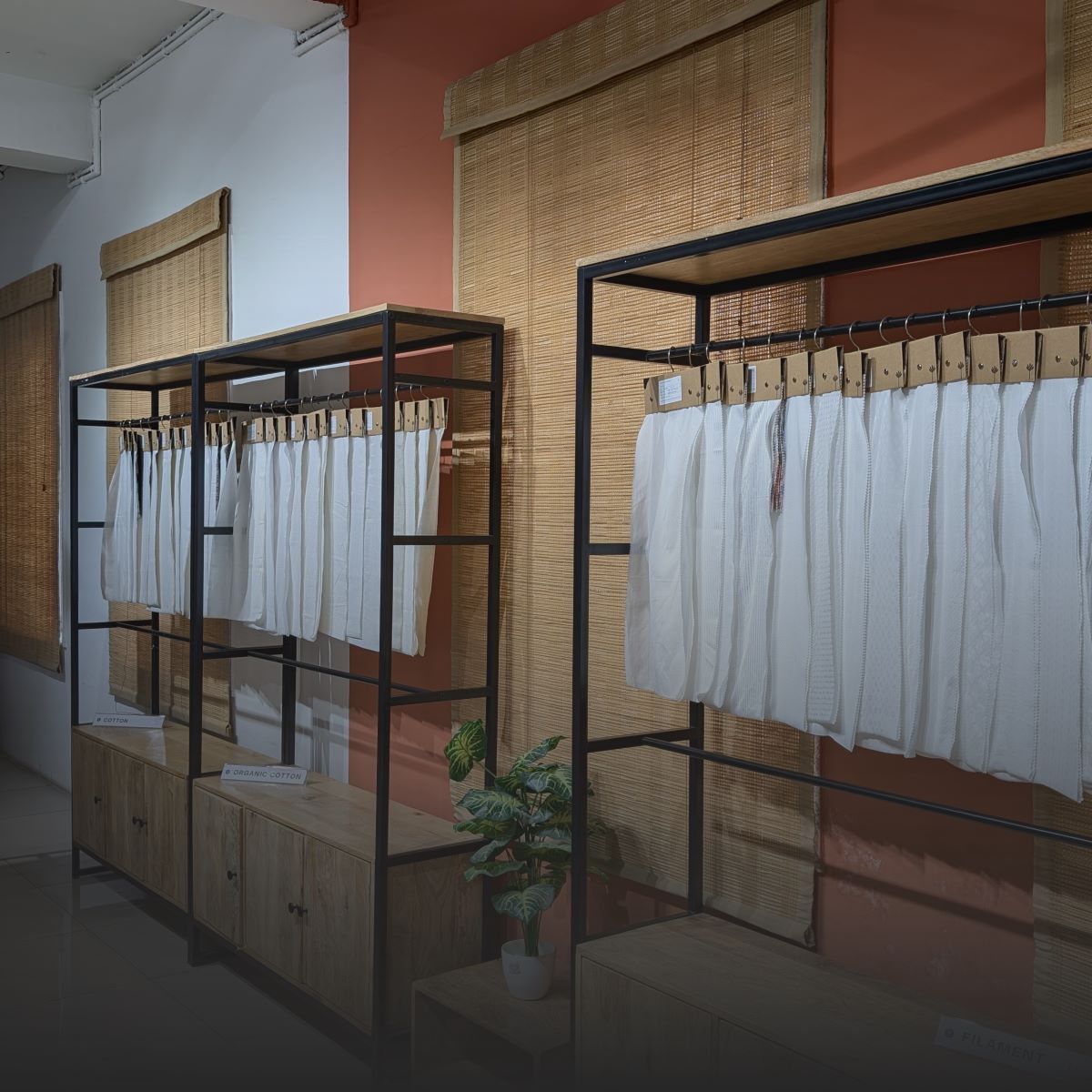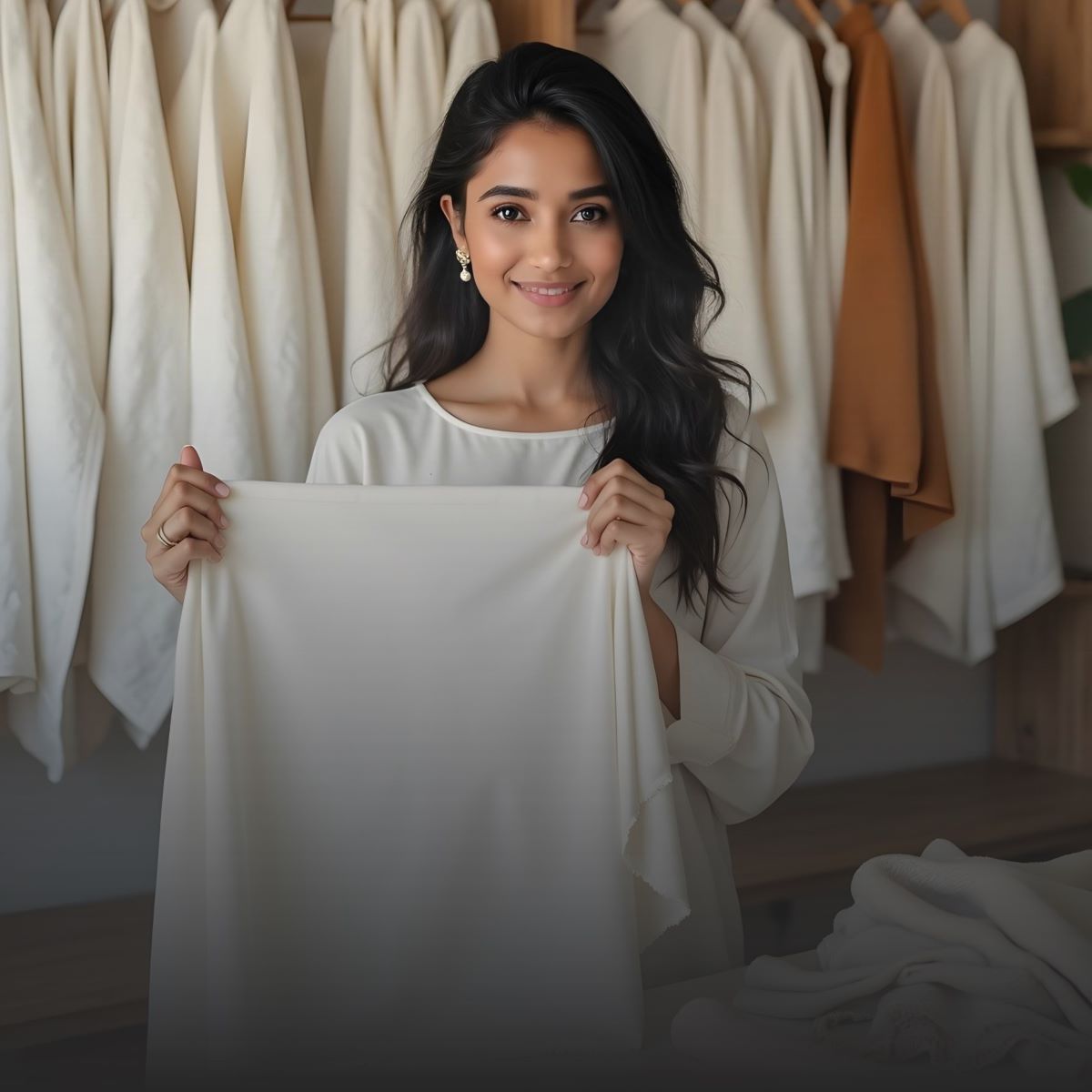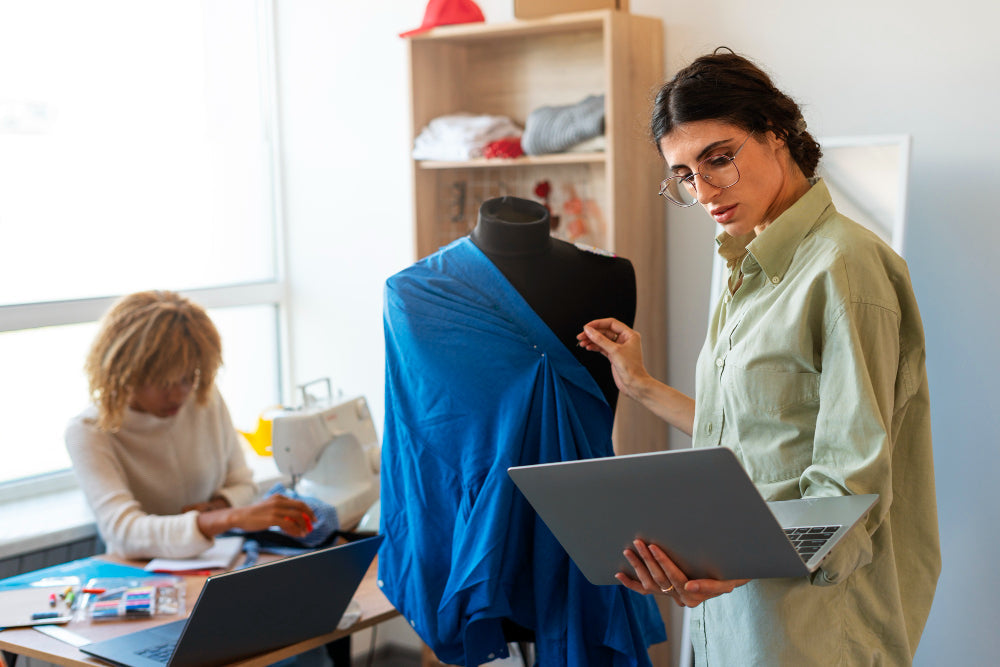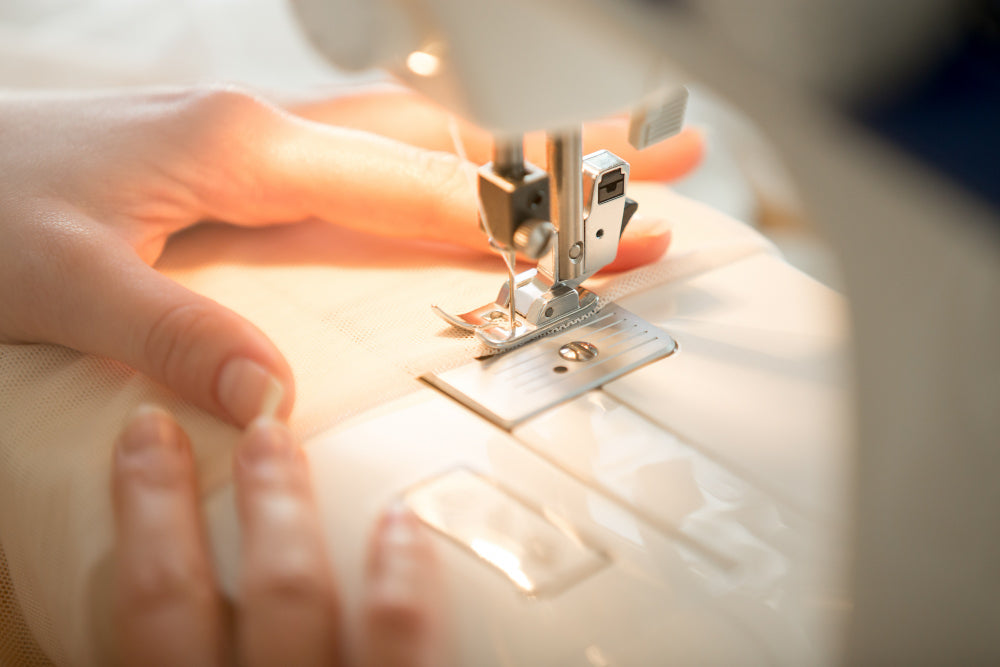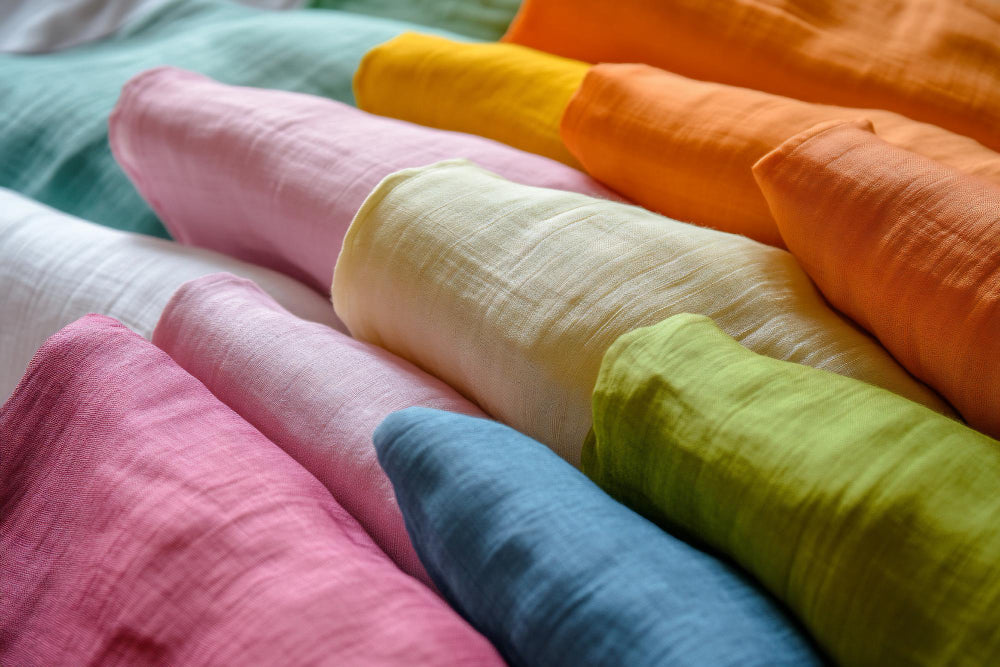Fashion brands want faster production, eco-friendly materials, and clear supply lines, so the global garment manufacturing industry is changing quickly. Modern brands need a global garment manufacturing solution that guarantees quality, dependability, and ethical production in order to compete on a global scale. As sourcing gets trickier, brands depend more and more on platforms that can handle fabric development, customization, sampling, and mass production all in one place. This change has made it more important to have a Low MOQ Clothing Manufacturer like Fabriclore that can be trusted for its flexible, all-around systems.
This article will talk about how modern manufacturing works, its main pros and cons, and how global brands can pick the best partner.
The Evolution of Global Garment Manufacturing
For many years, making clothes depended on regional groups and skills that were specific to the area. Brands sent production to different countries based on cost, expertise, or the supply of materials. Broken delivery lines, on the other hand, led to well-known issues:
- Many places to buy fabric, trims, and stitching.
- Long wait times.
- Delays in communication.
- Good mistakes in consistency.
- Having trouble increasing production.
- The source is not clear.
- Not enough tracking of sustainability.
The need for these kinds of systems was met by global garment manufacturing solutions, which provide centralized, full-service systems that allow brands to access everything in a single environment, from developing materials to delivering the finished goods.
Key Industry Changes Driving This Shift
- Rise of fast fashion and rapid drops.
- Demand for sustainable materials.
- Need for transparent supply chains.
- Growth of D2C & private label brands.
- Increased pressure on margins.
- Digital transformation of B2B sourcing.
Because of this, brands are looking for manufacturing partners that can handle the whole lifecycle of their clothes, send them faster, and keep quality standards high around the world.

Also Read: How to Manage Inventory and Logistics in Garment Manufacturing
Why Fashion Brands Need Global Manufacturing Solutions
It is now very competitive for global fashion brands to stay in business. Product quality, operating speed, and lowering costs are some of the things that can make or break a business. Centralized methods for making clothes are more organized and efficient because they allow:
1 Unified Quality Control
When you work with various suppliers, it's common for fits, fabric types, and dye lots not to match up. This risk goes away with a consolidated setup.
2 Faster Speed-to-Market
Fast turnaround from idea to shelf is important in today's fashion. By aligning all of their processes internally, integrated producers cut down on delays.
3 Data Transparency
Digital tracking lets brands keep an eye on where fabrics come from, how they're made, lead times, and compliance, which wasn't possible with older supply lines.
4 Cost Efficiency
A centralized environment gets rid of middlemen, makes shipping easier, and makes sure that everyone gets the same raw materials.
5 Sustainability Compliance
More and more people want fashion that is good for the environment. Brands need manufacturers who can prove they use low-impact production and ethical sources.
6 Low MOQ Capabilities
Private labels, small brands, and new creators need manufacturing partners who can handle less than large quantities of goods.
Global garment manufacturing solutions make sure that things are reliable, that they can be scaled up, and that costs stay low over time.

Also Read: How To Scale Garment Manufacturing Without Losing Quality
Core Components of End-to-End Garment Manufacturing
Fashion brands need manufacturing methods that cover the whole process, from the raw materials to the finished garment, to do well in global markets. Here is a full outline of the entire process of making a garment.
1 Fabric Sourcing (The Foundation of Every Garment)
Fabric makes up about 60% of the quality of an outfit. To make sure of quality, traceability, and sustainability, Global Manufacturing Solutions only buys materials from authorized mills.
Popular Fabric Bases in Global Apparel
- Cotton & Cotton Blends
- Rayon / Viscose
- Modal & Micro Modal
- Linen & Linen Blends
- Tencel & Lyocell
- Poly Viscose & Polyester Blends
- Denim & Twill
- Poplin & Cambric
- Bamboo Fabric
- Knits: Jersey, Rib, Interlock, Terry
- Wovens: Crepe, Satin, Chiffon, Georgette
What Modern Brands Expect
- RFD fabrics
- Greige fabrics
- Dyed fabrics
- Sustainable & certified materials
- Bulk fabric availability
- Low-MOQ sampling
This ensures stable sourcing before production begins.
2 Custom Fabric Development (Dyeing, Printing & Engineering)
Brands now like to use unique materials, colors, and prints to stand out.
Custom Dyeing Services
- Pantone-matched colors
- Reactive dyeing
- Pigment dyeing
- Low-impact / eco dyeing
- Batch consistency controls
Custom Printing Services
- Digital printing
- Rotary printing
- Screen printing
- Sublimation printing
- Block printing
- 3D rubber printing
Benefits for Brands
- Exclusive designs
- Greater control over aesthetics
- Repeatable dye lots
- High wash-fastness and durability
Customization makes sure that the fabric fits exactly with the brand's image and what customers expect from the product.
3 Design & Technical Development
After developing the fabric, the next step is to turn artistic ideas into frameworks that are ready for production.
Services Usually Offered
- Tech packs
- 2D/3D CAD pattern making
- Size grading
- Fit & silhouette development
- Measurement charts
- Trims & accessories planning
- Wash care & label instructions.
This step checks for correctness and stops mistakes that cost a lot of money during production.
4 Sample Development & Prototyping
It is important to take samples when checking the fit, comfort, performance of fabrics, and quality of finishing on clothes.
Common Sample Types
- Proto samples
- Fit samples
- Pilot samples
- Size-set samples
- Pre-production samples
Brands look at every aspect—stitching strength, seam placement, color match, and shrinkage—before letting a lot of clothes be made.
5 Bulk Garment Manufacturing
As the most important part of the creation process, this is where the parts are made. These are things that most global companies have:
Production Capabilities
- Cutting
- Stitching
- Embroidery
- Digital & screen printing
- Paneling
- Washing & finishing
- Labeling & packing
Compliance & Ethical Standards
- Zero child labor
- Certified factories
- Safe working environments
- Fair wages
- Social compliance audits
Categories Manufacturers Typically Serve
Below is a high-value, detailed category table.
Product Category Manufacturing
|
Category |
Sub-Categories |
Fabric Options |
MOQ |
|
Men’s Wear |
Shirts, Trousers, Co-ords, Jackets, Hoodies, Shorts, Ethnic Wear |
Cotton, Linen, Poplin, Twill, Denim, PV, Terry |
50–300 pcs |
|
Women’s Wear |
Dresses, Blouses, Tops, Co-ords, Skirts, Kurtas, Lounge Wear, Activewear |
Rayon, Modal, Tencel, Satin, Crepe, Chiffon |
50–300 pcs |
|
Kidswear |
T-shirts, Dresses, Onesies, Sets, Nightwear |
Cotton, Modal, Jersey, Rib, Muslin, Terry |
50–200 pcs |
|
Made-Ups |
Cushion Covers, Curtains, Table Linen, Bedding, Aprons |
Cotton, Linen, Blends |
Custom MOQ |
6 Sustainable Garment Manufacturing (A Global Imperative)
One of the main things that drives the global clothing market is sustainability. Modern ways of making things put an emphasis on using eco-friendly materials, dyes that don't harm the environment, biodegradable packaging, and fair labor practices.
Sustainable Fabric Options
- Organic cotton
- Bamboo
- Tencel & Lyocell
- Linen
- Recycled polyester
- Circular fabrics
Eco-Friendly Dyeing & Printing
- Low-water dyeing systems
- Non-toxic inks
- Digital printing to reduce wastage
- Controlled effluent treatment
Ethical Production Commitments
- Fair labor
- Safe workplaces
- No bonded or child labor
- Transparency & traceability
Waste Reduction & Recycling
- Better marker planning
- Reusing cutting waste
- Upcycling programs
- Digital prototyping
Sustainability is now a way for global brands to get ahead of the competition.
7 Multi-Layer Quality Control
For an international fashion business, quality control must be the same in all units. Manufacturers around the world use AQL-based tools like
Key QC Stages
- Fabric inspection
- Shrinkage testing
- GSM verification
- Seam inspection
- Fit analysis
- Needle detection (for wear)
- Final packaging QC
The clients get QC reports before the packages are shipped.
8 Packaging, Branding & Export Logistics
Manufacturers help big companies with:
Branding Solutions
- Woven labels
- Printed labels
- Hangtags
- Logo packaging
- Sustainable polybags
Export Logistics
- Air shipments
- Sea shipments
- Consolidated cargo
- Customs documentation
- Door-to-door delivery
For damage-free shipping around the world, export-ready packing is a must.

Also Read: Why Global Fashion Brands Are Choosing India for Garment Manufacturing
Benefits of Modern Global Garment Manufacturing Systems
Fashion is very competitive right now, so brands need production systems that are quick, reliable, scalable, and legal all over the world. Today's clothing ecosystems use technology, openness, and unified processes to help fashion labels lower risk, speed up production, and keep quality high across all lines.
1 Centralized Production
Finding fabrics, trimmings, stitching, printing, quality checks, and packaging are all taken care of by a single ecosystem, which makes cooperation easy.
2 Risk Reduction
Delays and mistakes in production are kept to a minimum by better planning, clear workflows, tracked outputs, and documented processes.
3 Scalability
Low MOQ orders for new names and high-volume production for global retailers can both be handled by modern systems.
4 Digital Integration
ERP systems, dashboards for tracking output, real-time visibility into inventory, and digital approvals all make communication and accuracy better.
5 Lower Costs
Overall production costs go down when cloth is bought in bulk, cutting is optimized, waste is cut down, and there are fewer mediators.
6 High Customization Flexibility
It's perfect for private label, direct-to-consumer, and online stores that need unique sizes, prints, dyes, and names.
Challenges in Global Garment Manufacturing
Even though the clothing industry has strong digital systems and skilled production teams, it still has problems that need to be planned for and solved in a flexible way. Knowing about these issues helps brands pick dependable production partners for global markets that are always changing.
Common Challenges
-
Problems with the supply chain.
-
Keeping things the same across big volumes.
-
Getting world certifications and following rules.
-
Changes in the prices of raw materials.
-
Demand predictions that are too low.
-
International logistics are hard.
How Modern Manufacturers Overcome Them
Diversified sourcing networks, smart capacity planning, digital forecasting tools, and transparent communication methods help advanced industries maintain output despite global disruptions.
What Fashion Brands Need to Consider When Choosing a Manufacturing Partner
Any fashion brand that wants to sell its clothes in other countries needs to be very careful when choosing a production partner. Brands need a "global garment manufacturer like Fabriclore" that is reliable, honest, and has technical know-how because customers are expecting faster, more eco-friendly, and more personalised clothing. When making clothes, a production partner should help you reach your design goals, meet your quality standards, and plan for growth.
Brands Should Evaluate:
- Quality consistency
- MOQ flexibility
- Sustainability certifications
- Fabric sourcing capabilities
- Sampling accuracy
- Transparent pricing
- Lead time reliability
- Global shipping capability
- Customization options
A good production partner should work with the brand like an extension of the team.

Fabriclore as a Global Wholesale Garment Manufacturer
Fabriclore is a reliable partner for making clothes around the world. They offer a single method for fabric sourcing, dying, printing, sampling, stitching, branding, and worldwide export. Fabriclore has been working with textiles for more than 10 years and offers international fashion brands scalable, ethical, and fully customized production solutions.
1. What Fabriclore Provides
Fabriclore is a global clothing manufacturer in India that supports worldwide labels by providing entire fabric-to-fashion services with low minimum order quantities (MOQs), certified materials, sustainable manufacturing, and transparent workflows. The platform enables businesses to debut collections faster by providing unique fabrics, technical design support, premium samples, high-quality garment production, and worldwide exports—all handled through a professionally controlled system.
2. Fabriclore's Core Services
Fashion brands need a partner that can handle everything, from coming up with new fabrics to making clothes, with accuracy, dependability, and sustainability around the world. Fabriclore is a bulk fabric supplier and sustainable garment manufacturer that uses ethical production methods. They offer a unified ecosystem built to meet the needs of modern sourcing, which helps brands grow faster while maintaining quality and allowing full customization.
Fabric Development
- RFD, Greige & Dyed Fabrics
- Sustainable fabrics
- Bulk fabric sourcing
- Engineered textiles
Customization
- Digital printing
- Screen printing
- Reactive/Pigment dyeing
- Pantone-matched dyeing
Garment Manufacturing
- Men's, Women's, Kidswear
- Made-ups & Home textiles
- Low-MOQ flexibility
- High-volume capability
Sustainable Production
- Eco-friendly dyeing
- Recycled fabrics
- Ethical labor practices
Sampling & Technical Development
- Tech packs
- Patterns
- Fit samples
- Size grading
Branding & Packaging
- Custom labels
- Sustainable packaging
- Hang tags
Global Logistics
- Worldwide shipping
- Door-to-door courier
- Consolidated cargo
3. Fabriclore Manufacturing Category Table
|
Category |
Sub-Categories |
Fabric Options |
MOQ |
|
Men’s Wear |
Shirts, Bottoms, Jackets, Ethnic, Co-ords |
Cotton, Linen, Denim, Twill, PV |
50–200 pcs |
|
Women’s Wear |
Dresses, Blouses, Kurtas, Co-ords, Lounge |
Modal, Rayon, Crepe, Satin, Cotton |
50–200 pcs |
|
Kidswear |
T-shirts, Dresses, Sets, Onesies |
Cotton, Jersey, Rib, Muslin |
50–200 pcs |
|
Made-Ups |
Curtains, Cushions, Table Linen |
Cotton, Linen, Blends |
Custom MOQ |
4. Why Global Brands Choose Fabriclore
As global production standards keep going up, fashion names need a partner that they can rely on and that can offer innovation, openness, and efficient manufacturing from start to finish. Fabriclore stands out as a leading apparel manufacturer because it combines deep knowledge of fabrics with modern, tech-enabled garment production. This gives brands of all sizes unbeatable value and solutions that can be scaled up or down.
Why Brands Trust Fabriclore
- A system that works together from cloth to garment.
- 10+ years of experience with textiles.
- Low MOQs that are good for new brands.
- Sustainable and moral production.
- Full customisation choices.
- High accuracy in sampling.
- Open and honest conversation.
- Shipping and packing are ready for export.
Conclusion
The world's clothing business is entering a new era marked by streamlined supply chains, moral production, and operations that are driven by data. Fashion brands need global garment manufacturing solutions that are dependable, clear, quick, and help them grow in a way that is sustainable. As international sourcing grows, so does the need for low MOQ clothing manufacturers and trustworthy production partners.
Fabriclore is a reliable choice in this changing ecosystem because it offers eco-friendly fabrics, customisation, and full fabric-to-fashion support. Fabriclore's modern, streamlined approach meets the needs of global labels, making the next generation of clothing designs for brands that want to save time and money without sacrificing quality or ethics.
FAQ's
1. What Are Global Garment Manufacturing Solutions?
A complete global garment manufacturing solution comprises fabric sourcing, dyeing, printing, sampling, stitching, QC, branding, and worldwide delivery. Fashion firms can streamline production, decrease delays, maintain quality, and scale transparently with these unified operations. Choose a global garment manufacturing partner for this benefit.
2. Why Do Fashion Brands Prefer End-To-End Garment Manufacturing?
Brands prefer end-to-end systems because they remove fragmentation, speed up time to market, improve quality consistency, lower communication mistakes, and allow for flexible MOQs. Leading apparel manufacturers offer lower prices and more reliable delivery times by combining fabric sources, customisation, sampling, and bulk production into one location.
3. How Do Global Manufacturers Ensure Quality Control?
Modern sustainable clothing manufacturers use multi-level quality control systems that check the fabric for defects, the garment's ability to keep its colour, its ability to shrink, its seam strength, its size, and its final packaging. A lot of them use digital QC records and international AQL standards to make sure that all of their batches are export-grade.
4. What Apparel Categories Are Covered In Global Garment Manufacturing?
Most global makers make clothes for men, women, kids, athletes, loungewear, uniforms, and home decor. Fabriclore goes even further; they offer totally customised manufacturing for shirts, dresses, trousers, co-ords, babywear, ethnic wear, and made-ups, with low minimum order quantities and a wide range of high-quality fabrics.
5. How Does Sustainability Fit Into Modern Garment Manufacturing?
We can't avoid the need for sustainability anymore. The best companies use recycled blends, low-water dyeing, non-toxic inks, organic cotton, bamboo, and fair labour practices. Fabriclore follows these morals at every step of the way and supports global certifications like OEKO-TEX, GOTS (on request), and ethical standards that are in line with SEDEX.
6. What Advantages Do Low-Moq Garment Manufacturers Offer?
Low MOQ clothing production lets brands start with 50–200 pieces of each style, which lowers the risk and speeds up the testing of new styles. Fabriclore is a known low MOQ clothing manufacturer that helps new brands, private labels, and boutiques make high-quality collections without having to worry about having too much inventory.
We also happen to be a magnet for suggestions, and would love to catch yours….throw us yours on hello@fabriclore.com
